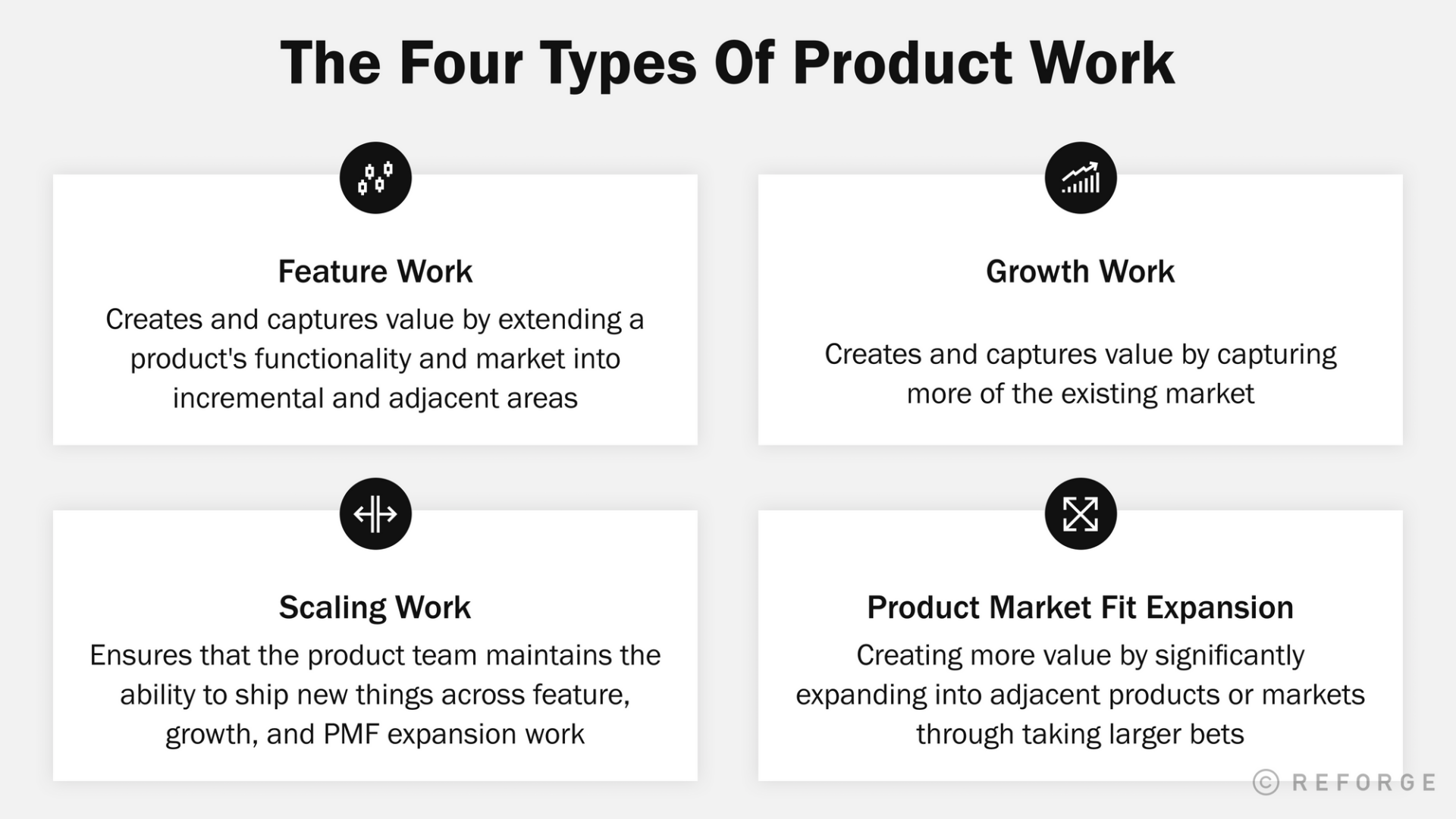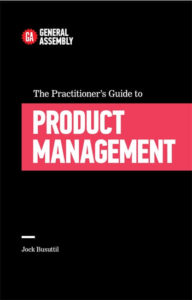
PRODUCTHEAD: To specialise in product management?
PRODUCTHEAD is a regular newsletter of product management goodness,
curated by Jock Busuttil.
tinker tailor soldier sailor rich man prod man beggar man thief
tl;dr
There are 4 emerging product manager specialisms
You can recruit different flavours of product manager by thinking along 3 axes
a favour: please share this with other product people
every PRODUCTHEAD edition is online for you to refer back to
hello
Throughout my writing and speaking to-date, my standard refrain has always been that a product manager is a generalist role, working with a team of specialists. Product managers are also commonly referred to as T- and Π-shaped people (those having a general understanding of many skills, but deep experience in one or two areas).
Product managers are like doctors
I recently compared product managers with doctors. In my post, I argued that it was necessary to tailor one’s product management approach to the context. Organisations operate in different markets, and exist at different stages of product and company maturity. A product manager needs to do different things to be successful in each of those situations.
As with doctors, product managers can remain true generalists or can choose to specialise in a particular branch of product management, although some fundamental principles of good practice apply in all cases.
4 types of product work, 4 types of product manager
Adam Fishman and Keya Patel of Reforge expand on this idea through their observations of typical product management work and examples of job adverts that effectively seek product managers with these specialisations.
Building on Reforge’s earlier article that there are only really four types of product work:
- Feature work
- Growth work
- Scaling work
- Product-market fit expansion

These translate to emerging specialisations in product management as Fishman and Patel define them:
- Core PM: focused on solving for a customer pain point or need (this is the most traditional style of product management)
- Growth PM: focused on the customer’s journey with a product, typically through the lens of business metrics
- Platform PM: focused on their internal customers/needs and scaling internal platforms and services
- Innovation PM:focused on identifying and experimenting with new opportunities to reach and expand product-market fit
Specialising in a technology
There is an increasing range and complexity of technologies and skills that a product manager has to contend with. When faced with skill areas such as machine learning for example, a superficial understanding won’t be enough to make any headway, so specialism is bound to occur.
Specialising in this way also only makes sense when a technology is widely adopted and likely to persist and evolve for a while. Otherwise you run the risk of specialising in something that falls out of fashion or simply is rendered obsolete. Specialising in the application of something like machine learning in products is probably a safer bet than a more niche and proprietary technology area.
Specialising in a product lifecycle stage
Likewise, if you really enjoy and are good at helping a product achieve initial product-market fit, then it makes perfect sense that you’d want to do that again for other products in other companies.
I have a concern on specialising in a particular product lifecycle stage. If you only ever manage early-stage products from ideation to product-market fit, you may be lost when it comes to managing the product through the inevitable later stages of its lifecycle.
In practice, you might not stick around long enough at a company to be the same product manager that creates and retires a particular product. The side-effect of specialism by lifecycle stage is that you are tied to a particular period of time for a product. Once that time has passed for that product, your skill set will no longer be in demand.
What to think about before specialising
Don’t misunderstand me, I’m not arguing against specialisation in product management. It’s more that I want to make two points:
Gain some experience in as much of the product lifecycle and with as many technologies as possible, in different types of organisation before deciding to specialise.
Jumping impatiently straight into a specialisation without a good general grounding in product management practice seems to be the way to limit your usefulness as a product manager.
To revisit my doctor analogy, trainee doctors are expected spend years rotating through many common disciplines in medicine and surgery before deciding how to specialise for the rest of their career. The fundamentals underpin and inform the more specialist areas of knowledge.
Choosing to focus on your specialism at the expense of acquiring varied experience may make it more difficult for you to take on a VP / director / CPO role later in your career.
When you’re responsible for a portfolio of products and multiple delivery teams, they’ll often be at different stages, probably using different technologies and will require correspondingly varied approaches. You’ll need to craft a coherent strategy for the product portfolio as a whole, as well as supporting your team of product managers with their respective strategies.
Final thoughts
A choice for specialism in your career as a product manager means accepting the trade-offs that come with it. I’m not suggesting that you shouldn’t specialise, merely that if you decide to do so, do it mindfully.
Speak to you soon,
Jock
what to think about this week
The growing specialization of product management
Product Management has not yet defined specialities. This leads people to think a Product Manager (PM) is a PM — meaning we hastily assume all PM roles are created equal and the best PMs are those who know everything across different types of product work/stages. That’s simply not the reality of the situation since Product specializations are emerging informally as a mess.
4 types of work, 4 types of product manager
See also part 2: How to navigate product management specializations
[ADAM FISHMAN & KEYA PATEL / REFORGE]
Product Management Coaching
Whether you’re new to product management or have been a product manager for years, a coaching session can help you to step up your career.
We’ve coached people wanting to get into product management, product people with nobody in their organisation to manage them, and experienced product managers preparing to apply for a promotion.
We can help you prepare for your product manager interview, including mock interviews.
A proportion of the fees from every coaching session is donated to charity.
“Jock has been instrumental in my personal growth as a product leader but also as a person.”

Ludovic Lacay
Co-founder & Chief Product Officer, Napo
Find out more about product management coaching
The product thinking that built Slack & Twitter, with April Underwood
I’ve featured this particular podcast episode before quite recently, and I make no apology for sharing it again as it’s excellent. In particular the segment from 00:33:10 onwards describes April’s great mental model for hiring product managers. I’m sure you’ll find it useful.
April Underwood has been Director of Product at Twitter and Chief Product Officer at Slack. She is a powerhouse product leader with an unusual depth of experience in growing both B2C and B2B products from 0 to 1 to ubiquity and building world-class product teams along the way.
Framing product manager recruitment along 3 axes
[APRIL UNDERWOOD / NFX]
recent posts
5 tips to ace your first impression at a new job
Because so much of product management is about working with people, it’s important to take time to reflect on the kind of first impression you make to those people. In this latest entry for my series of 100 things I’ve learned about product management, I share some coaching advice to help you make the best possible impression every time you start working somewhere new.
[I MANAGE PRODUCTS]
Replatforming the cash cow
Recently people all seem to be encountering the same problem. Their engineering teams are choosing to work on projects that make them look busy, but which don’t actually move things forward. What they’re usually working on is a convoluted — and arguably doomed — attempt to replatform a legacy ‘cash cow’ product.
A strong signal to discover the replacement product
[I MANAGE PRODUCTS]
The unifying principles of product management
A recent tweet by John Cutler provoked some interesting reactions. It got me thinking about whether there are unifying principles of product management that apply in all contexts.
[I MANAGE PRODUCTS]
upcoming talks and events
I’ve spoken at various product management and technology conferences around the world and online. I share ideas primarily on the topic of product management, and this tends to overlap with agile and ethical product development, leadership and strategy, and fostering healthy product cultures and communities.
“Day 2 saw an impressive presentation by Jock Busuttil on user testing. He asked the attendees to lend each other a smartphone and take a picture. What a turmoil that caused ;-) ”

Walter Schärer
Marketing & Business Development Director, BlueGlass Interactive
If you’d like to book me to speak at your event, please get in touch.
can we help you?
Product People is a product management services company. We can help you through consultancy, training and coaching. Just contact us if you need our help!
Helping people build better products, more successfully, since 2012.
PRODUCTHEAD is a newsletter for product people of all varieties, and is lovingly crafted from different flavours of product manager.


Leave a Reply